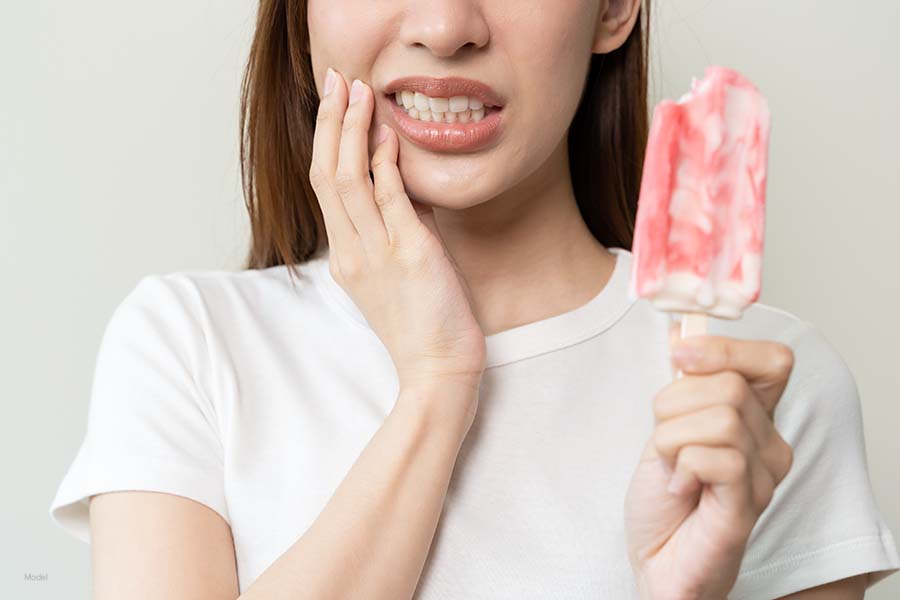Dental crowns are commonly used to remedy many dental problems, such as cracked, chipped, or damaged teeth. Your dentist will ensure your natural tooth and root are in good condition before placing the crown over the visible areas of the tooth up to the gum line. Following the crown placement, it is common for patients to experience some tooth sensitivity.
But how long is too long for tooth sensitivity after a crown placement?

How Long Does Initial Recovery from Dental Crown Placement Take?
Dental crowns are made from a variety of materials, such as porcelain, metal, or a combination of both. After a crown has been placed, it is common for patients to experience a range of sensations. As your teeth and gums adjust to the changes made in your mouth, you may experience heightened sensitivity. Your gums may become inflamed in response to the new crown, contributing to discomfort.
You may notice your mouth is more sensitive to hot or cold food and liquids during this period. Be patient and try to avoid consuming any items that trigger pain. This initial recovery period can range from a few days to a few weeks. If pain persists for months, that may indicate a problem.
If the Dental Crown Doesn’t Fit Correctly
Before a crown is placed, the dentist must remove a portion of the natural tooth to fit the crown. This helps ensure the crown will be at the same level as the rest of your teeth, helping to maintain your bite.
Sometimes, a dental crown may be slightly off—either a little too high or too low—which can adversely affect your comfort and the function of your bite. An off-center or irregular bite can cause irritation whenever you bite or chew, resulting in tooth sensitivity.
What Nerve Damage Indicates
If tooth sensitivity persists—or worsens—after crown placement, you may have nerve damage. When a tooth cracks or breaks, bacteria can enter the tooth and cause damage. If this is not treated correctly, it can result in further damage and tooth sensitivity.
When Should I See My Dentist for Tooth Sensitivity?
If tooth sensitivity after a crown placement persists beyond two months, there may be an underlying issue that requires your dentist’s attention. Your dentist will check the crown’s fit, assess your teeth and gums for damage or infection, and devise a treatment plan.
At-home Tips for Tooth Sensitivity After Crowns
Here are some key things you can do at home to help alleviate your tooth sensitivity:
- Avoid very hot or cold foods and drinks
- Brush your teeth using a soft toothbrush
- Use toothpaste for sensitive teeth
- Avoid hard, crunchy foods
- Wear a night guard if you have bruxism and grind your teeth
- Take over-the-counter pain relievers
Interested in Dental Treatments for Tooth Pain in Beverly Hills, CA?
Don’t wait for your persistent tooth pain to go away. Call Dr. Kevin Sands in Beverly Hills. Dr. Sands is known as the dentist to the stars because so many celebrities choose him for his high level of skill, custom treatment plans, and over 20 years of experience. If you have persistent tooth sensitivity or are interested in a wide variety of cosmetic dental services, schedule a consultation with Dr. Sands today. Call (310) 273-0111 today.